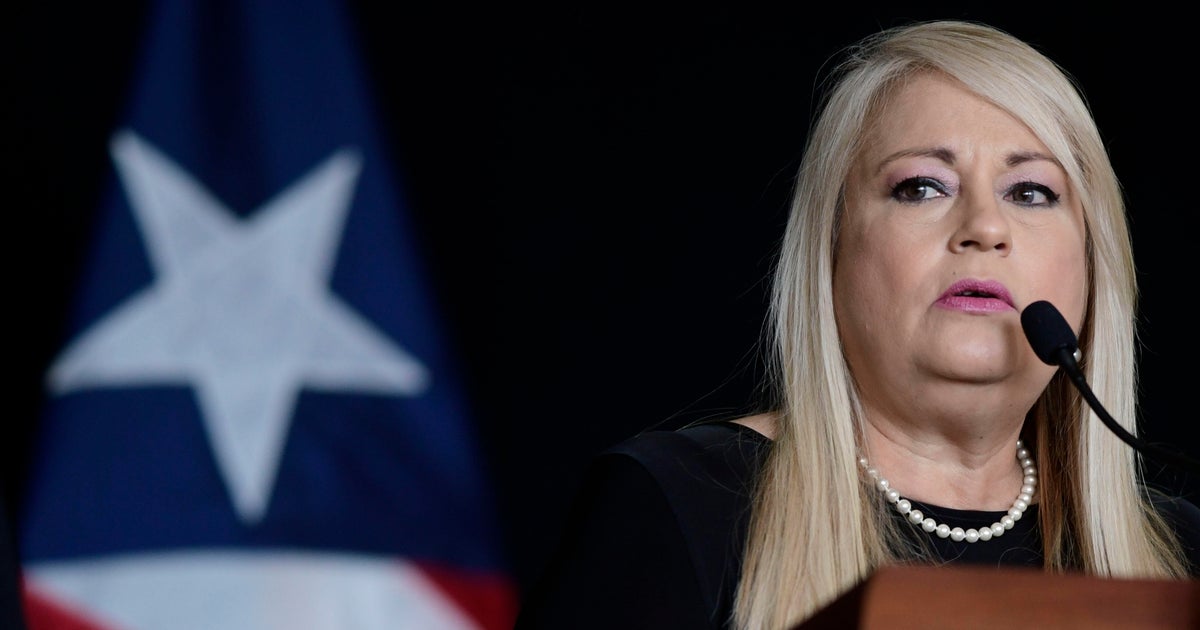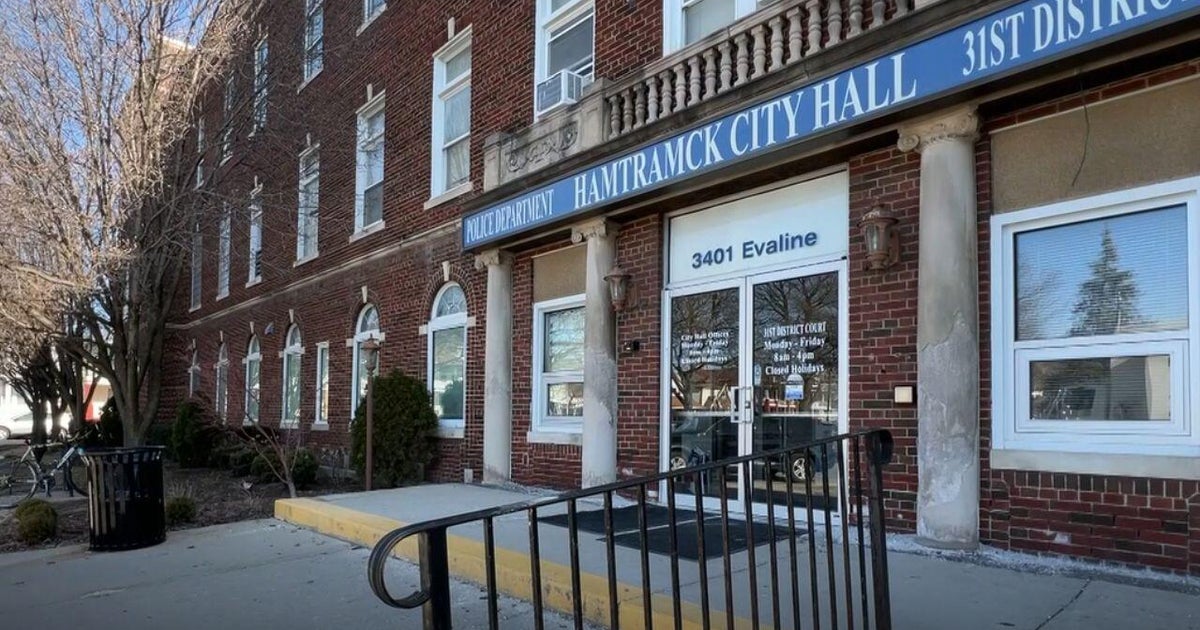245 lawsuits and 50 days to go: How the 2020 campaign is also being waged in the courts
Washington — With Election Day 50 days away, the 2020 election battle is being waged not only on the campaign trail, but also in courtrooms around the country, as efforts to alter voting procedures during the coronavirus pandemic have spawned a barrage of legal challenges and left the presidential campaigns amassing armies of lawyers ready to fight after the ballots are cast.
As of August 31, there have been at least 245 coronavirus election cases filed in 45 states, the District of Columbia and Puerto Rico, according to Justin Levitt, a professor at Loyola Law School, who has been tracking the disputes that seek to shape the election rules. He says he started counting the cases a few months ago. Now, he writes, "I've tracked quite a lot of them. (And I'm 100% sure I'm missing some.)."
Election law experts say each cycle tends to bring with it an uptick in new lawsuits, but this year is unique.
"The pandemic and the polarization that we have right now have really turbo-charged it," Dale Ho, director of the Voting Rights Project at the American Civil Liberties Union, said.
The ACLU alone would typically file three to five new cases in the run-up to an election, which would touch on issues like signature-matching procedures or the closure of polling places, Ho said. But this year, it has filed 20 cases in 16 states, the vast majority of which deal with absentee and mail-in voting.
"We're just asking for the rules to be reasonably accommodating to this crazy, once-in-a-lifetime scenario we find ourselves in," Ho said.
Levitt noted that lawsuits were filed earlier in the year, too, which he attributes to the pandemic, as election officials altered the voting procedures for the primaries.
"Some of these questions were going to arise no matter what," he said in an interview. "Some of these issues are the sorts of issues you see contested in any election cycle, but many of them were unique to the pandemic."
Thirty-four states and the District of Columbia offer no-excuse absentee voting, and five states conduct their elections entirely by mail. But the pandemic left election officials scrambling to alter their procedures so votes could be cast safely, which prompted some remaining states to try to ease their rules for vote-by-mail, such as witness and signature requirements.
But Republicans worry that hasty efforts by states to lift restrictions will lead to voter fraud, though there's little evidence for this. President Trump, who's leading the opposition against mail-in voting, is fighting in the courts to keep voting rules unchanged in the face of the pandemic.
"See you in court," Mr. Trump tweeted last month after the Nevada legislature voted to send mail-in ballots to all active registered voters. He and the Republican National Committee followed through on that threat and have filed similar lawsuits in Pennsylvania, New Jersey and, most recently, Montana.
So far, the Trump campaign and the RNC have earmarked $20 million for litigation this election, and they're working on raising an army of 50,000 volunteers to monitor polling places in battleground states, according to reports.
But they say it's the Democrats who are to blame for the rash of legal battles during the campaign.
"Democrats have filed one crazy lawsuit after another in 18 states across the country, working to undermine the integrity of our election," Matthew Morgan, Trump 2020 general counsel, said in a statement to CBS News. "They believe they can sue their way to victory and there's no telling what other shenanigans Democrats will pull once polling locations are open. Republicans will be ready to make sure the polls are being run correctly, securely, and transparently as we work to deliver the free and fair election Americans deserve."
Joe Biden's campaign is also preparing to deploy its own fleet of lawyers and volunteers. Biden told donors during a virtual fundraiser in July his campaign has assembled 600 lawyers across the country and 10,000 volunteers to determine "if any chicanery is likely to take place."
While there has been a flurry of lawsuits mounted in the run-up to the election, campaigns are also preparing for the fight to continue in the courts long after ballots are cast, raising the specter of multiple Florida 2000 recounts lasting weeks beyond Election Day.
In the 2000 race between George W. Bush and Al Gore, the results in Florida were too close to call, leading to manual recounts in four counties. The Supreme Court ultimately intervened a month after the election and halted the recount, sealing the election for Mr. Bush.
"It's totally a foregone conclusion that we should all anticipate litigation ramping up even more than it already is now," Jessica Furst Johnson, an election law attorney who has worked for Republicans, told CBS News.
Johnson noted that during the 2018 recount for the U.S. Senate race in Florida, where she led the GOP response, there were roughly 25 different lawsuits filed. But the 2020 election sees the convergence of multiple new factors, including the pandemic, anticipated record-setting voter turnout and the rapid expansion of vote-by-mail in many states, setting the stage for legal battles in state and federal courtrooms nationwide.
"These states are making very drastic changes in a very short period of time," she said. "A lot of the litigation on the Republican side is trying to hold the officials' feet to the fire on that point. Not only does the Constitution say the legislature has the responsibility for designating the time, manner and place of the election, but these are really knee-jerk changes."
Johnson noted that it took several years for Washington state to transition to all vote-by-mail. But this year, many states are attempting to implement changes to their voting regulations in a matter of months.
"With all of these changes that haven't been well thought out in a lot of instances, we'd be crazy to think that things aren't going to be messy for quite a while after the election," she said, adding, "we all need to be prepared for situations that we've never seen before."
Mr. Trump already appears to be setting the expectation that he could question the integrity of the election results, telling reporters last month it could be "months" before a winner is declared because of "lost" ballots. As part of his frequent attacks on vote-by-mail, the president has warned on Twitter that mail-in ballots could led to a "rigged" election if those counted after Election Day propel Biden to victory.
Levitt said he expects "lots of nonsense" that seeks to cast doubt on the integrity of the outcome of the election but doesn't believe those efforts will be successful.
Still, the chaos of the presidential election is not expected to abate once the polls close November 3.
Johnson recalled that in 2018, the Florida recount forced her to cancel a family vacation scheduled for the week before Thanksgiving.
"I joked with my family that this year, they'll be lucky if I see them at Christmas," she said.
Preparing for "overtime," as Levitt called it, is standard in presidential elections, as litigation is part of the "normal dispute-resolution process."
But the impact of the legal battles likely won't be known until after the election and will depend on how many states have small margins.
"It could be that there's major litigation after the election but still within normal bounds," he said. "Or it could be we're all waiting for five justices on the Supreme Court to tell us who won the presidency, and that's the worst case scenario for everyone, the court included."





